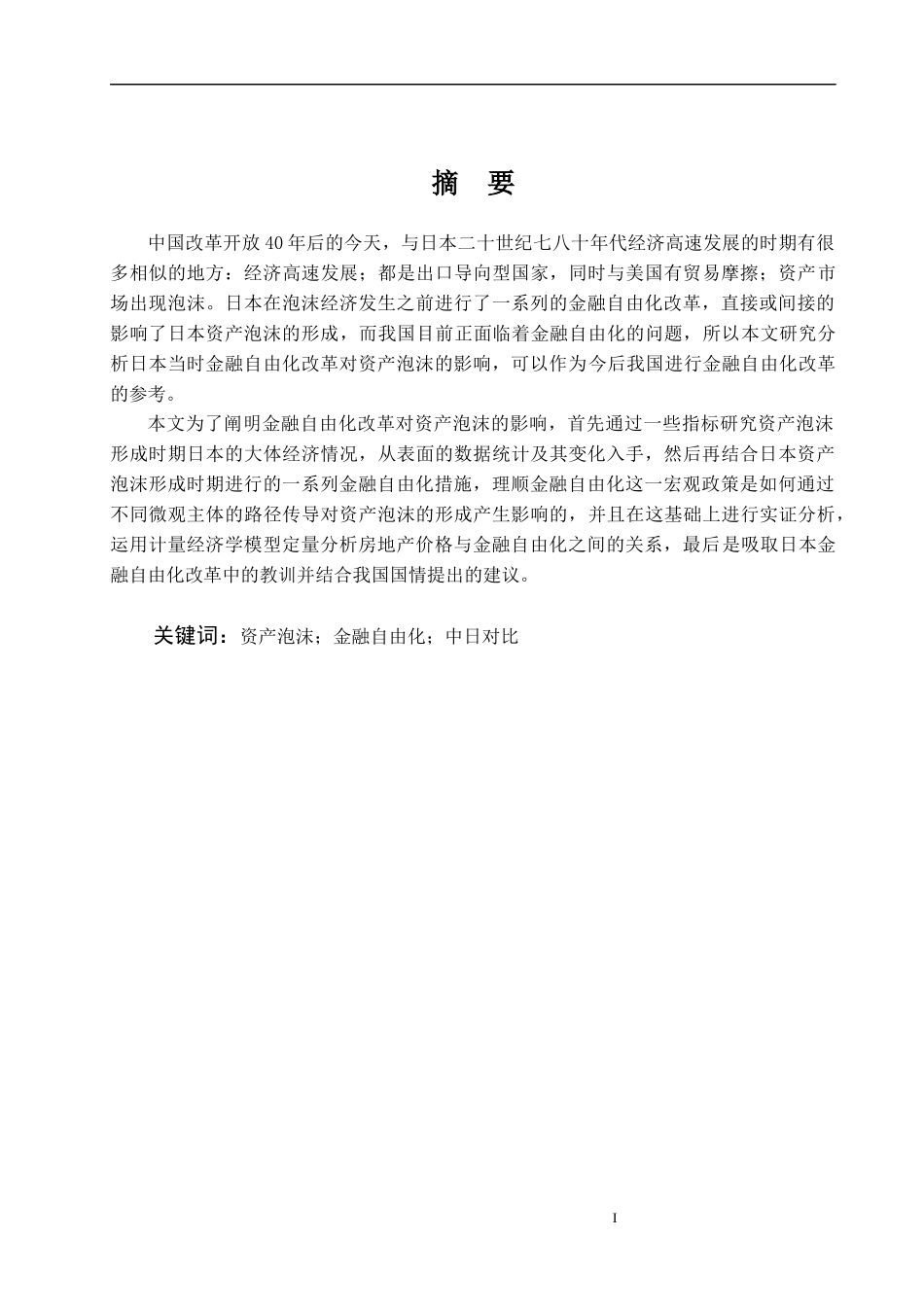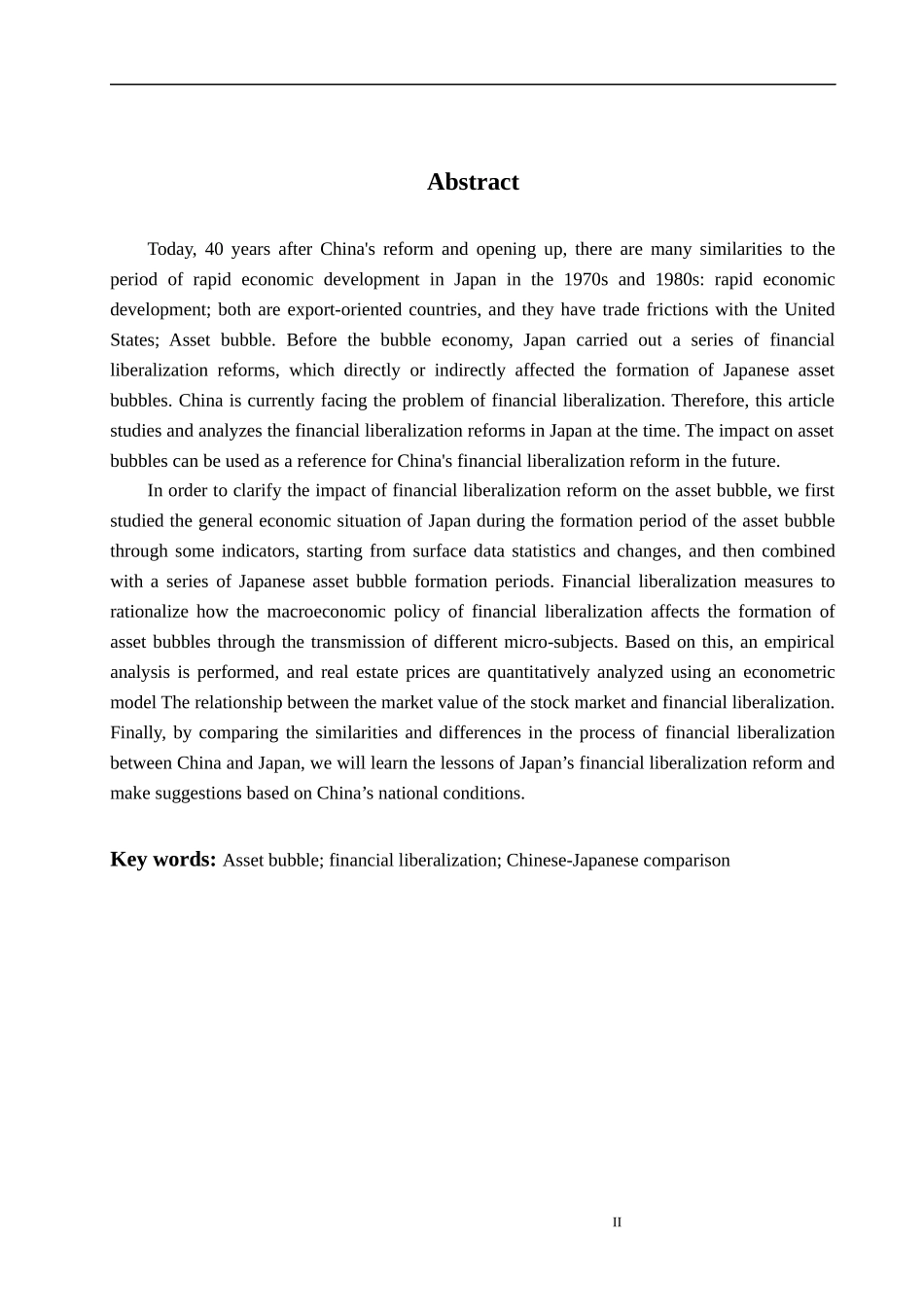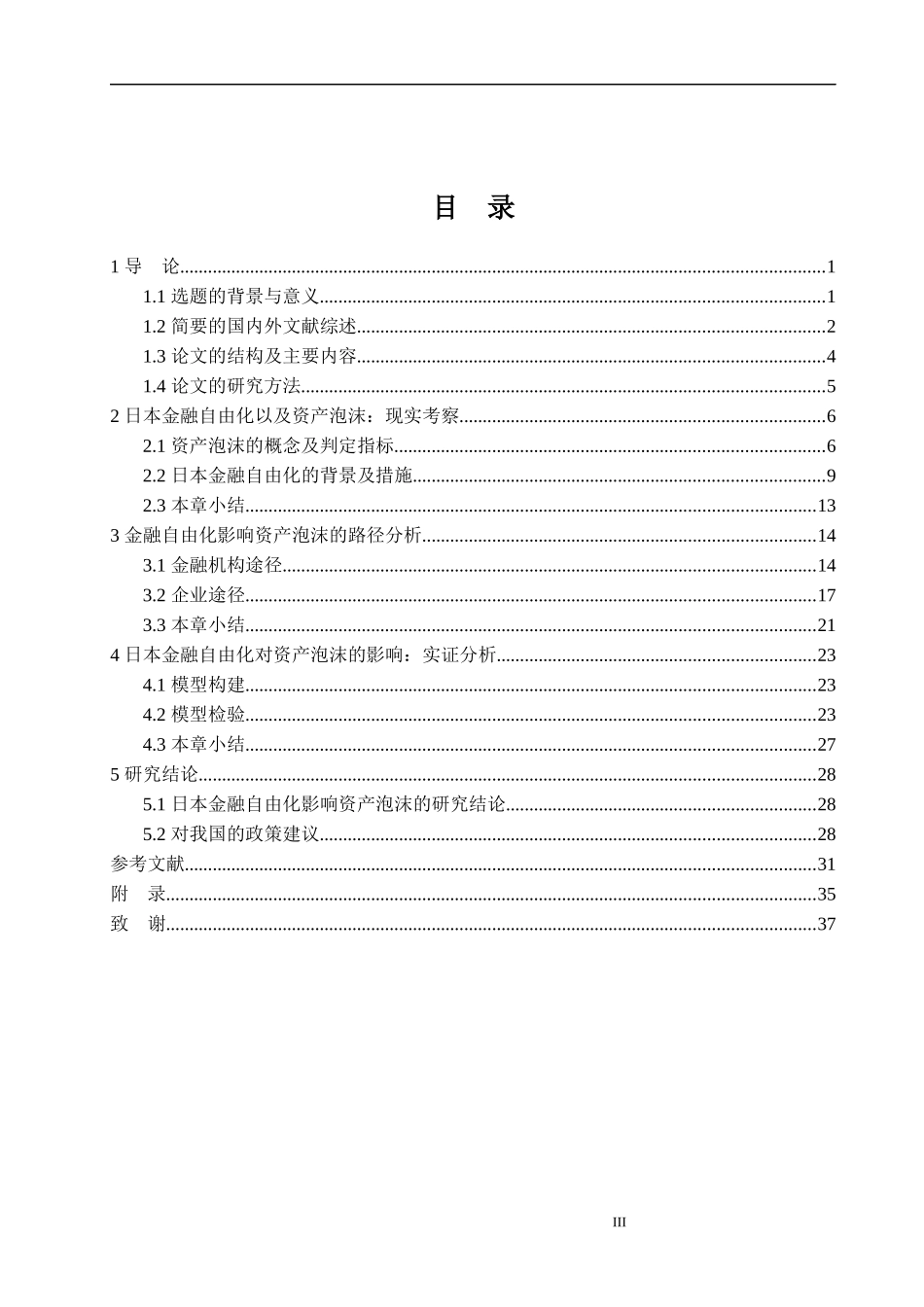I摘 要中国改革开放 40 年后的今天,与日本二十世纪七八十年代经济高速发展的时期有很多相似的地方:经济高速发展;都是出口导向型国家,同时与美国有贸易摩擦;资产市场出现泡沫。日本在泡沫经济发生之前进行了一系列的金融自由化改革,直接或间接的影响了日本资产泡沫的形成,而我国目前正面临着金融自由化的问题,所以本文研究分析日本当时金融自由化改革对资产泡沫的影响,可以作为今后我国进行金融自由化改革的参考。本文为了阐明金融自由化改革对资产泡沫的影响,首先通过一些指标研究资产泡沫形成时期日本的大体经济情况,从表面的数据统计及其变化入手,然后再结合日本资产泡沫形成时期进行的一系列金融自由化措施,理顺金融自由化这一宏观政策是如何通过不同微观主体的路径传导对资产泡沫的形成产生影响的,并且在这基础上进行实证分析,运用计量经济学模型定量分析房地产价格与金融自由化之间的关系,最后是吸取日本金融自由化改革中的教训并结合我国国情提出的建议。 关键词:资产泡沫;金融自由化;中日对比IIAbstractToday, 40 years after China's reform and opening up, there are many similarities to the period of rapid economic development in Japan in the 1970s and 1980s: rapid economic development; both are export-oriented countries, and they have trade frictions with the United States; Asset bubble. Before the bubble economy, Japan carried out a series of financial liberalization reforms, which directly or indirectly affected the formation of Japanese asset bubbles. China is currently facing the problem of financial liberalization. Therefore, this article studies and analyzes the financial liberalization reforms in Japan at the time. The impact on asset bubbles can be used as a reference for China's financial liberalization reform in the future.In order to clarify the impact of financial liberalization reform on the asset bubble, we first studied the general economic situation of Japan during the formation period of the asset bubble through some indicators, starting from surfac...












